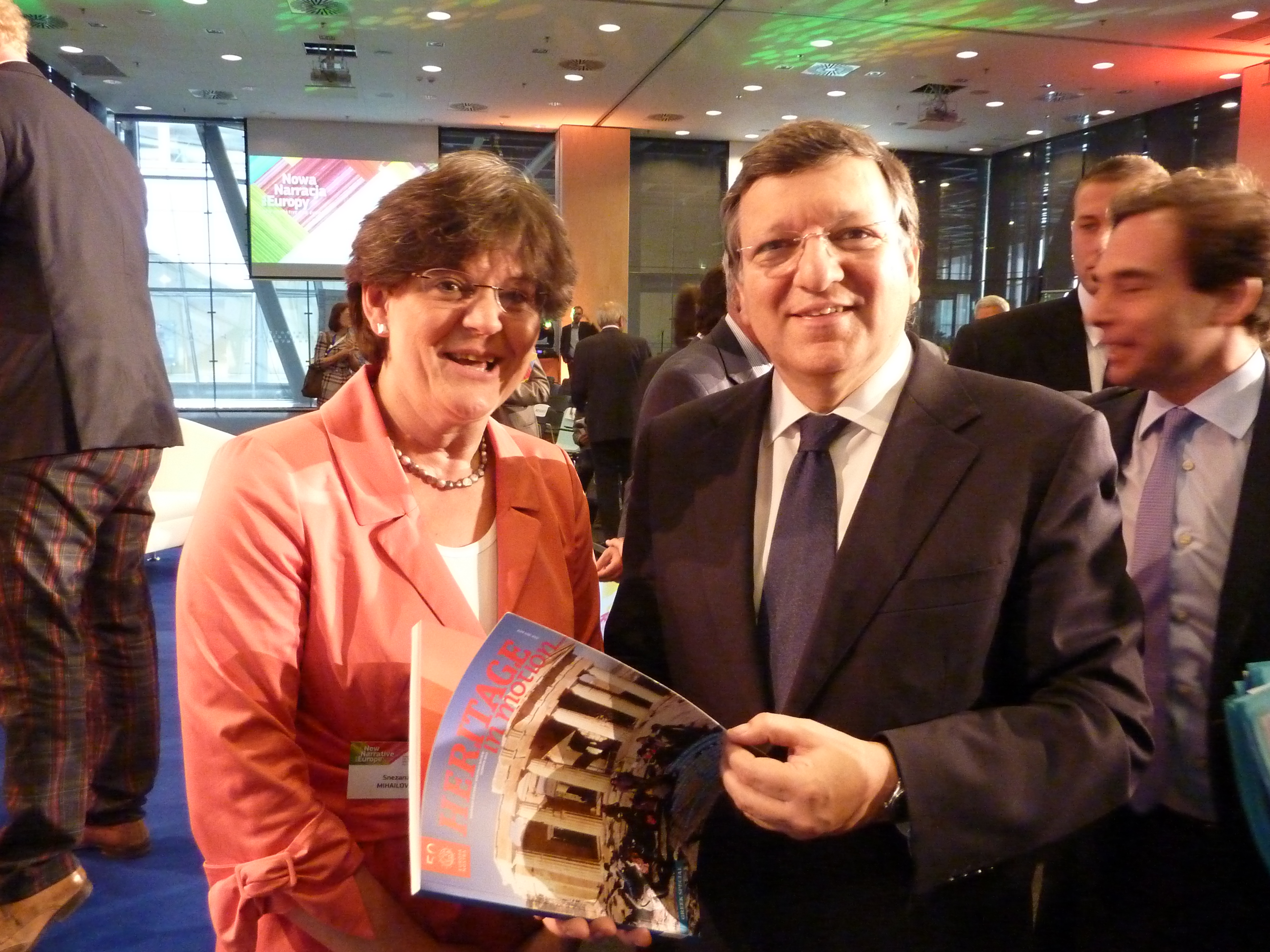‘New Narrative for Europe’: Geneal Assembly and call for contribution launched in Warsaw
On 11 July, the President of the European Commission, José Manuel Barroso, and the Prime Minister of the Republic of Poland, Donald Tusk, hosted the General assembly of the “New Narrative for Europe” at the Copernicus Science Centre in Warsaw. Some 250 European and Polish personalities from the cultural, intellectual and scientific worlds discussed the challenges facing Europe. It served as an inspiration to jointly explore the history, values, symbols and cultural aspects that unite citizens and to come up with a new narrative for Europe. Europa Nostra’s Secretary General, Sneška Quaedvlieg-Mihailović, was invited to contribute to the panel discussion on “Europe’s soft power: the arts, heritage and sciences”. To watch her speech, see video below.
When talking to the press ahead of the Warsaw event, President Barroso said: “We need a new narrative for a self-confident and open European Union because only then we will be able to rise up to the challenges of today’s globalized world. The New Narrative for Europe aims to bring new inspiration into the debate on Europe’s future. We can and must embrace the challenges of a new world while holding back Europe’s old demons. We don’t want a mediocre, defensive Europe that tries to bury its head in the sand to avoid the realities of the 21st century.”
In Warsaw, the opening speeches by President Barroso and Prime Minister Tusk were followed by three panels discussing the following topics:
• What cultural values do we need to make a common story?
• Europe’s soft power: the arts, heritage and sciences
• The image and role of Europe in a global and interdependent world
“Our heritage has an essential European dimension since it has been forged not only across time and across generations but also across communities, across borders and across territories. Our Heritage tells us not only our local or national history, it also tells us the ‘story of us as Europeans’. The Narrative on our shared European Heritage must therefore be duly incorporated in any New Narrative for Europe”, stressed Sneška Quaedvlieg-Mihailović during the panel discussion moderated by Professor Michal Kleiber, President of the Polish Academy of Sciences. President Barroso listened attentively to the contributions of all panellists and took part in the final debate on symbols, imaginaries and events which can give shape to Europe’s New Narrative.
The New Narrative project aims to encourage greater involvement of European intellectuals, artists and scientists to invite them to a long-term public discussion about Europe. The project aims to involve a large number of European citizens. Europa Nostra encourages its members, partners and other contacts to contribute in writing to provide their own vision of a possible new narrative for Europe.
In particular, everyone wishing to contribute may choose to answer the following questions:
1) What does Europe mean for me: What should it mean to citizens?
2) Why do we need a Cultural Europe today?
3) How should the New Narrative for Europe be shared among European citizens?
Contributions can be uploaded on the website: http://ec.europa.eu/debate-future-europe/new-narrative/index_en.htm
The “New Narrative for Europe” initiative was launched in Brussels on the 23rd April 2013. Europa Nostra’s Secretary General is among the members of the Culture Committee that was set up to assist President Barroso with this initiative. An exclusive interview with President Barroso on “The New Narrative for Europe” can be read in the latest issue of the Europa Nostra’s Heritage in Motion Magazine (see photo). To read the interview click here.
The “New Narrative for Europe” initiative will be carried out over three meetings in the form of “general assembly”. The meeting in Warsaw will be followed by the assemblies in Italy and in Germany. The General Assemblies should lead to the publication by the participants and other interested parties of a public document on the “New Narrative for Europe”. This document shall gather elements relating to the values, culture and history that represent the connecting link between Europeans. The purpose is to develop a vision for Europe which can be adapted to the current challenges such as solidarity, strengthening the democratic legitimacy of the EU and the role of Europe in the age of globalisation and interdependence. The document on the “New Narrative for Europe” will be presented to the public at the beginning of 2014 ahead of next year’s European Elections.







